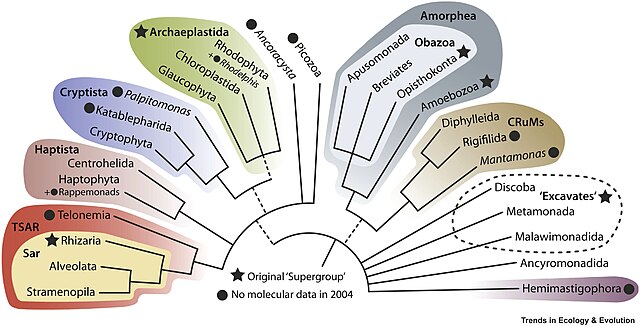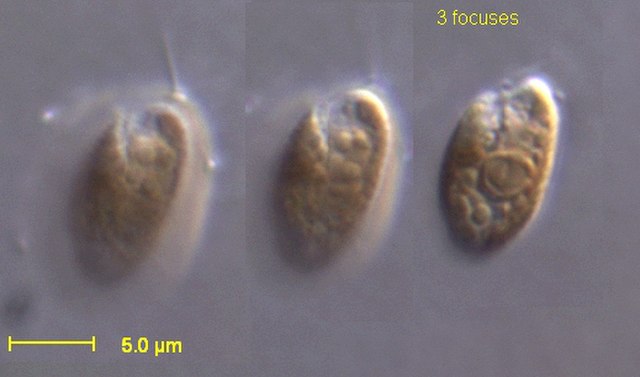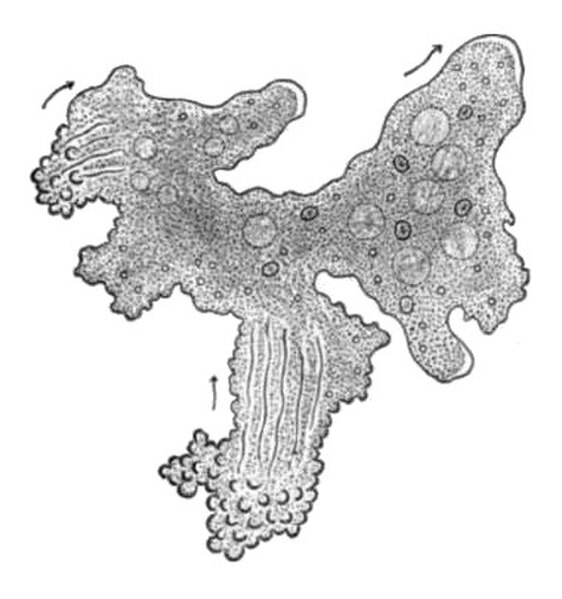A protist or protoctist is any eukaryotic organism that is not an animal, land plant, or fungus. Protists do not form a natural group, or clade, but are a polyphyletic grouping of several independent clades that evolved from the last eukaryotic common ancestor.
Protist
Phylogenomic tree of eukaryotes, as regarded in 2020. Supergroups are in color.
Goldfuss' system of life, introducing the Protozoa within animals.
John Hogg's illustration of the Four Kingdoms of Nature, showing "Regnum Primigenum" (Protoctista) as a greenish haze at the base of the Animals and Plants, 1860
The eukaryotes constitute the domain of Eukarya or Eukaryota, organisms whose cells have a membrane-bound nucleus. All animals, plants, fungi, and many unicellular organisms are eukaryotes. They constitute a major group of life forms alongside the two groups of prokaryotes: the Bacteria and the Archaea. Eukaryotes represent a small minority of the number of organisms, but given their generally much larger size, their collective global biomass is much larger than that of prokaryotes.
Image: Rhodomonas salina CCMP 322
Image: Ranunculus asiaticus 4LEST
Image: Trypanosoma sp. PHIL 613 lores
Image: Chaos carolinensis Wilson 1900








